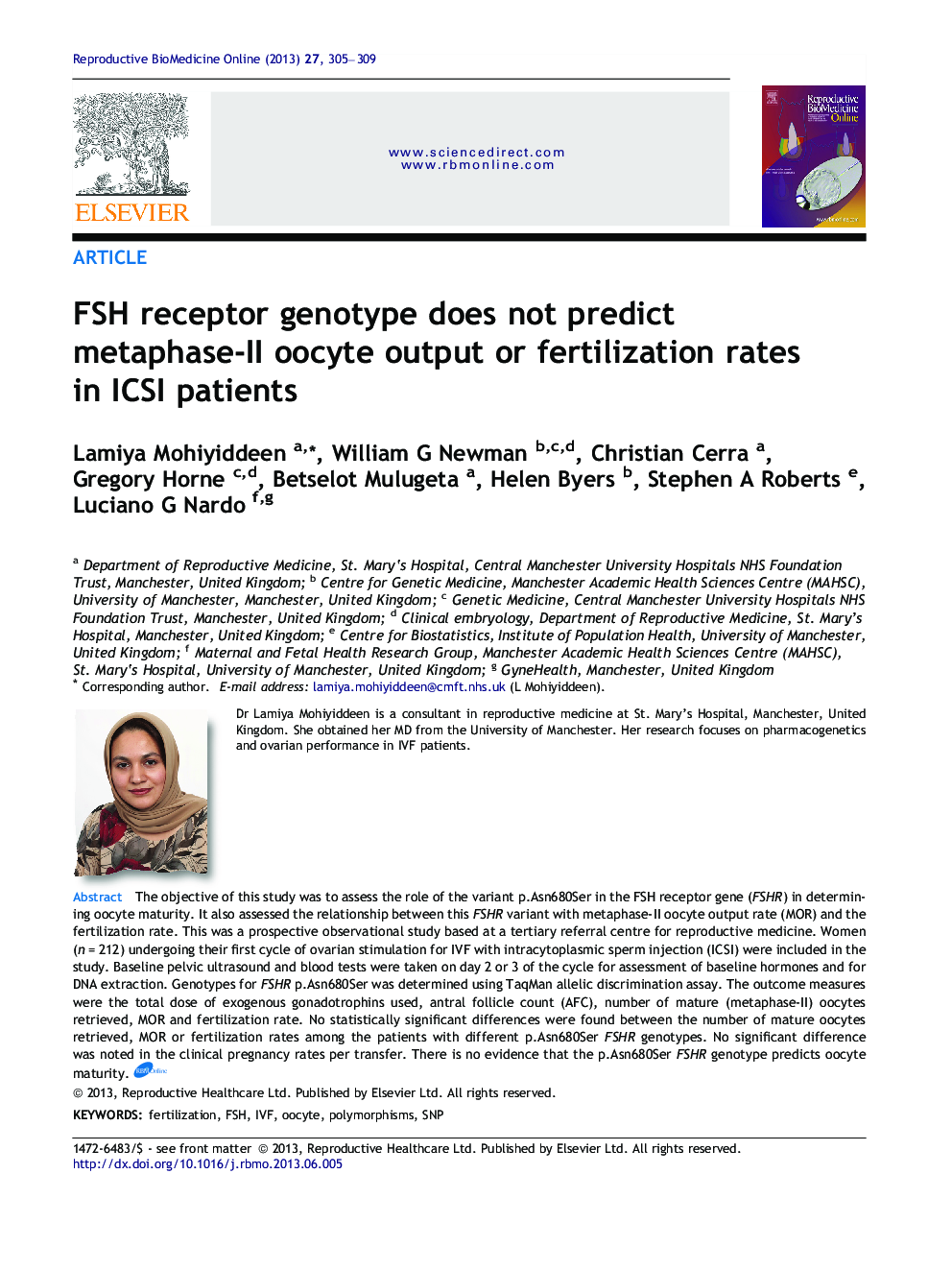| Article ID | Journal | Published Year | Pages | File Type |
|---|---|---|---|---|
| 3970573 | Reproductive BioMedicine Online | 2013 | 5 Pages |
The objective of this study was to assess the role of the variant p.Asn680Ser in the FSH receptor gene (FSHR) in determining oocyte maturity. It also assessed the relationship between this FSHR variant with metaphase-II oocyte output rate (MOR) and the fertilization rate. This was a prospective observational study based at a tertiary referral centre for reproductive medicine. Women (n = 212) undergoing their first cycle of ovarian stimulation for IVF with intracytoplasmic sperm injection (ICSI) were included in the study. Baseline pelvic ultrasound and blood tests were taken on day 2 or 3 of the cycle for assessment of baseline hormones and for DNA extraction. Genotypes for FSHR p.Asn680Ser was determined using TaqMan allelic discrimination assay. The outcome measures were the total dose of exogenous gonadotrophins used, antral follicle count (AFC), number of mature (metaphase-II) oocytes retrieved, MOR and fertilization rate. No statistically significant differences were found between the number of mature oocytes retrieved, MOR or fertilization rates among the patients with different p.Asn680Ser FSHR genotypes. No significant difference was noted in the clinical pregnancy rates per transfer. There is no evidence that the p.Asn680Ser FSHR genotype predicts oocyte maturity.IVF is a complex treatment for infertility requiring costly drugs and carrying significant risk of complications. The procedure aims to stimulate the ovaries to produce more eggs, and conventional methods include a combination of hormones to induce follicle growth, from which eggs are collected. Before beginning the first IVF cycle, knowledge of individual ovarian activity may help predict the response to stimulation and allow clinicians to tailor treatments. Over the last 50 years, it has become evident that studying the genetic mechanisms behind variations in drug response in can help control and minimise adverse effects of drugs and their related actions. Hypothetically, a genetic test looking at the variations in the FSH receptor gene may help identify the dosage required and can predict the quality of egg and embryo. One of these variants (at position 680 of exon 10) has been linked to differences in FSH action during ovarian stimulation. None of the studies to date have looked at the role of these genetic markers in the prediction of the quality of eggs and fertilization. We undertook a large prospective study and did not see a relationship between a FSH receptor gene variation and the dosage of gonadotrophins used, quality of eggs or fertilization rates. We surmise that the outcome of ovarian stimulation could be dependent on several factors – both genetic and non-genetic – in a complex multi-factorial model. In the future, genome-wide screening strategies may allow the discovery of further genetic variants associated with ovarian response to stimulation.
